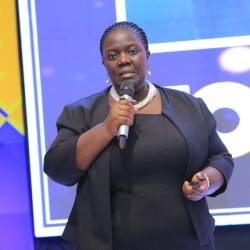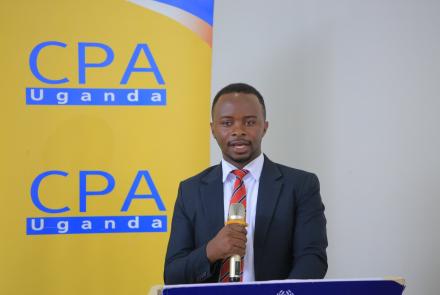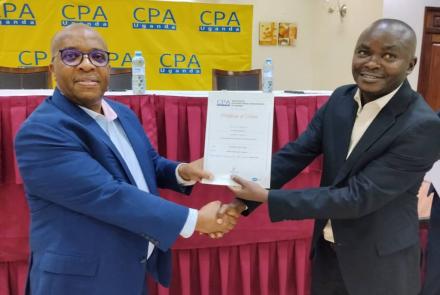By Jackline Nabirye
Communications Officer - ICPAU
Parenting is no longer a private affair but a global issue with far-reaching implications on societies, economies, and the well-being of future generations.
This was the central message delivered by Catherine Ruhweza, CEO of Mama Tendo Foundation, and Godfrey Siu Etyang, Senior Lecturer at Makerere University College of Health Sciences.
The duo was delivering presentations on the topic, “Fatherhood Reimagined: Strengthening Families through Involved Parenting,” during the 30th Annual Seminar of the Institute of Certified Public Accountants of Uganda (ICPAU).
They challenged professionals and parents to rethink traditional parenting roles and embrace intentional, consistent engagement in the lives of children.
“Parenting is not an isolated activity. It happens alongside careers, businesses, marriages, and other commitments. Yet, too often, children compete with these for our attention,” said Ruhweza.
She stressed that parenting must be viewed as both a national and global priority, with countries investing widely in programmes that go beyond child survival to holistic child development.
Ruhweza underscored that involved parenting means more than providing for a child’s basic needs. It is about being emotionally, mentally, and physically present, building secure attachments, promoting better behaviour and academic success, supporting emotional growth, and strengthening family bonds.
Etyang emphasised that fatherhood must evolve beyond the traditional breadwinner role.
“Fathers play a unique nurturing role. Connection with children is built through intentionality, not just presence,” he said.
He noted that small, consistent moments such as bedtime chats, dinner conversations, or car ride talks can have a profound impact on a child’s development.
Etyang painted a sobering picture of the state of families in Uganda. He noted that high levels of family disintegration, domestic violence, alcohol abuse, and absent fathers have contributed to widespread challenges among children and youth, including teenage pregnancies, depression, and crime.
Citing statistics, he revealed that only 5% of Ugandan fathers are actively involved in their children’s lives, while 40% deliberately ignore their responsibilities.
“The plight of men today reflects a crisis of masculinity. Many are disheartened, stressed, and unable to process emotions, leading to violence, family breakdowns, and substance abuse,” Etyang explained.
He argued that reimagining fatherhood requires men to embrace responsibility not as dominance, but as service, protecting, nurturing, and guiding their families.
Drawing from Maslow’s hierarchy of needs, Ruhweza’s presentation illustrated that true parental involvement must progress from meeting basic survival needs to fostering multi-dimensional connections that build trust, resilience, and character.
The experts further debunked myths that only mothers are natural nurturers and busy working parents cannot be engaged, urging families to instead adopt deliberate habits of connection and integrate family time into their schedules.
Ruhweza warned against extreme parenting styles such as autocracy, which breeds rebellion, and overly permissive parenting, which fosters entitlement.
She advocated for family leadership that models teamwork, mentors children, and encourages open communication.
“Involved parenting is the one investment with guaranteed returns. It raises resilient, emotionally secure, and responsible children,” said Ruhweza.
The three-day ICPAU Annual Seminar, running from 3–5 September 2025 under the theme, “Positioning Professionals for Sustainable Impact,” blends technical learning with soft skills development, team building, and recreation. The discussions on fatherhood and parenting were a timely reminder that professional success is incomplete without strong family foundations.
-END-




